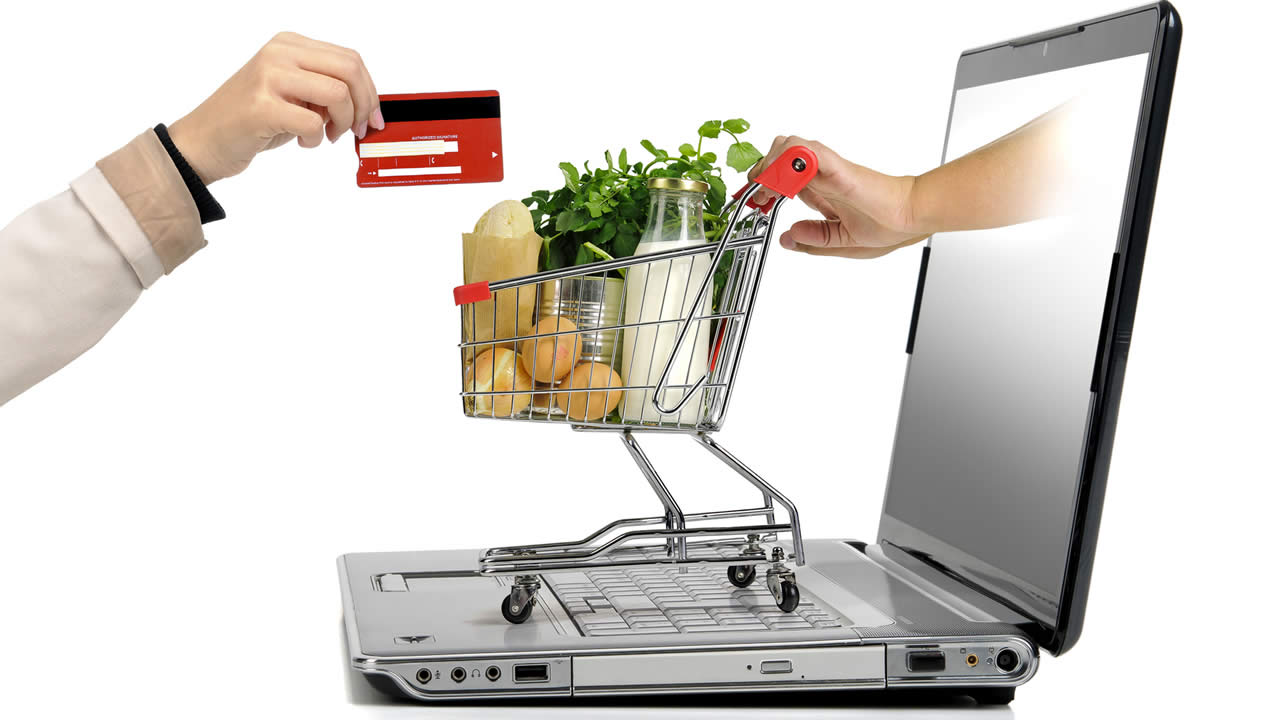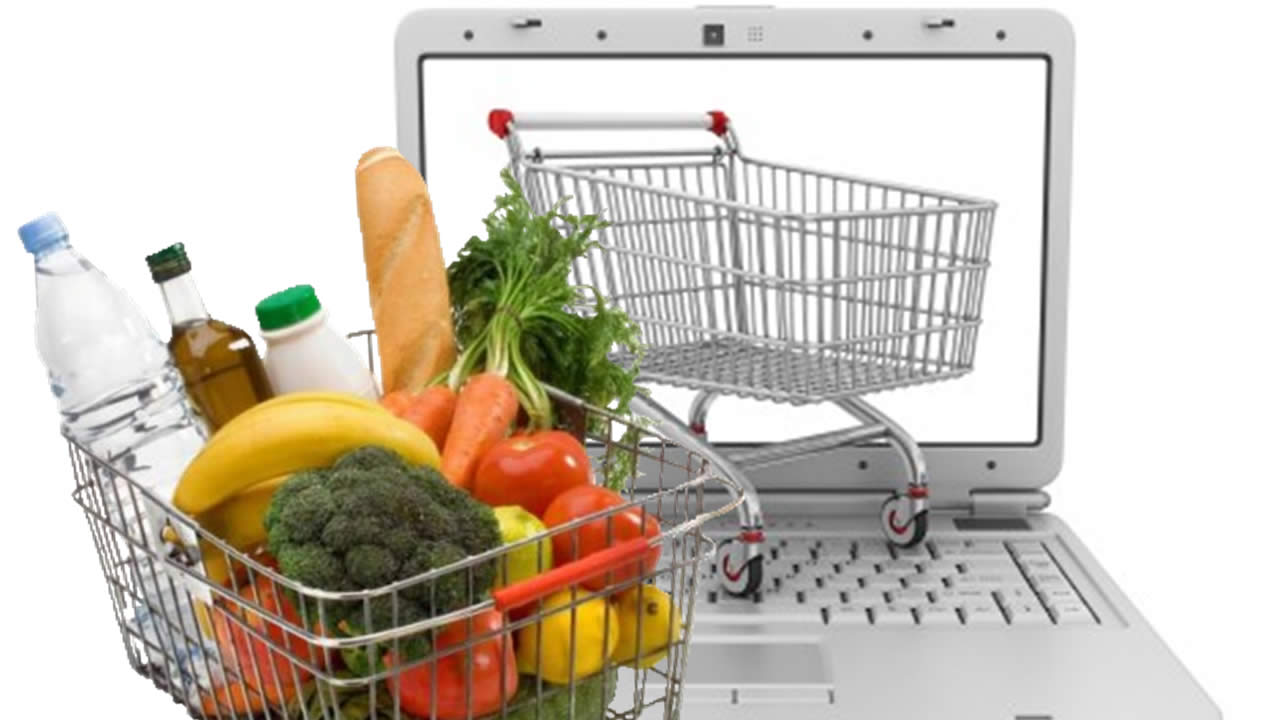

Around 70% of consumers will be grocery shopping online by 2024, according to a report from the Food Marketing Institute and Nielsen. The adoption of online shopping continues to witness a tremendous growth. Worldwide research shows that within the five next years, the majority of shoppers are expected to be buying their grocery shopping online. In Mauritius, will this digital revolution be a threat to supermarkets or will be it an add-on to their services?
In this digital age, consumers do not need to spend long hours in supermarkets to shop for their groceries. Savegenie, TheShop.mu and Welcomeonline.mu are a few online grocery shopping providers. They have started their operations but the growth is believed to be slow. With this revolutionary change, the future of retail will not be the same anymore. In this frenzy to maintain their supremacy, supermarkets are trying to add services like online shopping, in store pick-up or even home delivery, some even partnering with other partners to come up with better services.
Dr Harrish Bheemul, Digital Marketing expert, argues that evolution has seen the consequences of innovations in a context where the suppliers could forecast the trend of demands, and taking into account several variables that lead to a profitable and effective proposition. “Like every business, the small shops expanded their volume of products but not necessarily in terms of space occupied. Shopkeepers used to take longer time to serve each client as the shopping list grows. With a labour force not just too unreliable, but also expensive, hypermarkets came into force where the clients have the freedom to check and pick the products, and make their way to a check out. The small shops have re-arranged their space, invested in technology that allow them bill their clients and control their stock, but also to manage their team more efficiently.”

He argues that with the digital boom, especially with mobile apps, shopping in itself has modernized and the mobility to go to a hypermarket is not even required. “Through a mobile app, most products can be ordered and delivery is done to any given address. With the busy lifestyle of professionals, it is a way to shop quite easily. Until now, as per recent surveys, buyers are extremely happy to use mobile apps for surveys and the trend can only increase in coming years.”
He underlines that Mauritius is not just ready but has already adopted this new trend. “There is a category of a generation who still prefers to physically shop at hypermarkets, but there is also a growing audience of shoppers that have already adopted technology to shop. Today I personally shop online and delivery is done at my office address at a specific time. It’s because I do not have enough time to visit a hypermarket. However, going to hypermarkets like Bagatelle, Ebene, or Flacq Coeur de Ville is not just shopping for groceries, it’s a new lifestyle, as these places are well equipped with entertainment values that are add-ons to family bonding.”
Additionally, Sameera Koyratty Managing Director of Safe Sha Training, explains that online platforms for shopping, whether websites and mobile apps technology, have literally changed every aspect of the way any business operates and never in history has that change occurred so fast. “The application of big data and cloud computing is changing the nature of work and the structure of the economy.

Today, with these online platforms, a digital platform economy has emerged. Companies such as Amazon, Etsy, Facebook, Google and Salesforce are creating online structures that enable a wide range of human activities. This opens the way for radical changes in how we work, socialize, create value in the economy, and compete for the resulting profits. Their effects are distinct and identifiable. With the technological revolutions, we’ve seen also an impact on the Customer Base. Millennials are becoming the primary driving force behind business, the economy, and the world.”
Similarly, Alisha Hingun, Marketing Lecturer at Curtin Mauritius, affirms that if nowadays consumers are increasingly more at ease to purchase items online, there will be no big barrier to make them shift their grocery shopping behaviour online too. “However, local online companies have yet to create an authentic virtual environment for consumers to shop. This means that the online platform that would replace supermarkets or hypermarkets are not here yet but are progressively emerging. Applications or websites that are mobile friendly, for example, are still at the development stage in Mauritius.”
Where do we stand?
In Mauritius, we have different E-commerce platforms. But for groceries, there are three main ones, each different from the other: TheShop.mu, Savegenie and Welcomeonline.
TheShop.mu

Launched in 2016 by Agnieszka Bungsy, TheShop.mu is an online supermarket where customers can access thousands of products on the website, and get them delivered at the time and location that suit them, anywhere in Mauritius. Delivery is done six days a week free of cost for any orders over Rs 2,000. Customers get to choose the delivery slot, so they know exactly when to expect the delivery to be made. They offer flexible payment options (card or cash on delivery, Paypal, Juice, bank transfer, and credit for business customers). Our prices are highly competitive, and we pride ourselves on professional and friendly customer service, and constantly increasing our selection of products. We offer a Discount Programme, with customers being able to save an additional 3 to 10% of their shopping, depending on their monthly expenses with us,” Agnes Bungsy.
Savegenie.mu

Savegenie is another one of the biggest E-commerce platforms in Mauritius, with more than 10,000 products, founded by Amit Verma. Clients such as households, offices, restaurants and small stores can login on Savegenie.mu and place an order online. They can select their address and slot of delivery, which is promptly done. “We are launching our fulfilment centre where any supplier or shop can store their products and distribute efficiently across Mauritius without bothering about opening multiple shops or logistics. This will bring the latest in E-commerce tools to Mauritius,” says Amit Verma.

The potential
Agnes Bungsy from TheShop.mu states that there have been many entrepreneurs entering the e-business space in Mauritius over the past few years but many of them have failed and those who are prevailing are the ones who provide truly professional customer service and are able to scale. “There is a strong need for quality E-commerce sites in Mauritius. People are busy these days; they look for convenience, more choices, and easy access to products.”
Agnes is anticipating more and more E-commerce sites appearing in Mauritius over the coming years. “Entry barriers are very low these days, and often aspiring E-commerce entrepreneurs do not fully understand all the ins and outs of running an online business. But the demand for online shops in Mauritius will also grow, and we expect that TheShop.mu will be able to continue to expand the range of products and reach out to an increasing number of customers. We are also expecting that our contribution to the volume of Mauritian products being exported overseas will also grow.”
Along the same lines, Amit Verma argues that Mauritius is ready to buy digitally. “Mauritius is seeing a lot of growth of e-platforms.
Our platform enables clients to get great deals online and reduce their monthly expenditure on basic needs. We will see to it that we offer a wide variety of products and choices available at affordable prices, even at the remotest places in Mauritius. Savegenie enables any small shop or supplier to sell online and benefit from technology. Any supplier or even a housewife can now dream of becoming an entrepreneur and start selling her products on Savegenie.”
He believes that traditional suppliers and shops are not open 24/7 nor do they provide logistics. “A client usually needs to go to these shops and pick his own products, pays bills and then carries them home, whereas with on an online platform like ours, the customers can easily place orders from the comfort of their homes. The purchases get delivered at their doorstep with zero delivery fees for a sum above Rs 500 and products are competitively priced.”
In the near future, Amit Verma expects the market to grow exponentially as more and more customers experience the comfort of shopping online. “We will change the way Mauritius buys and sells products like Amazon has done worldwide. We also expect to launch more categories and variety to enhance our motto of one-stop shop.”
A promising Future?
According to Dr Bheemul, internationally, e-hypermarkets are already a well-known phenomenon and a multi-billion-pound industry. “The demands and specifications are such that this industry can only prosper further. Developers are coming up with new ideas and innovative platforms to provide USPs to hypermarkets.” Locally, the future is also very promising, states Dr Bheemul. “There is already some training being done at professional level and graduates completing their studies are launching themselves into entrepreneurship by developing such apps for hypermarkets. The use of these apps integrated with a web and social media platform, and well promoted using Search Engine Optimization, are helping to boost return on investments.” With endless possibilities, as well as the trade exchanges between Africa and Mauritius, digital hypermarkets may just be the next boom both economically and socially, if it is not already one, recalls Dr Bheemul.

The challenges
Every innovation brings its own challenges. From security to loss of labor, E-platforms has various limitations as well.
Vulnerability
Dr Bheemul argues that technology as such has its limitations, especially if it must be merged with logistics that involve human resources. “For instance, an order may be done via an app, but the delivery still needs a driver and a mode of transport that, in today’s context, may not always be reliable. Also, technology application as a system is always vulnerable to hacking or breakdown. Hence, security will always be a question mark despite massive improvement over the years.”
Low confidence
Dr Bheemul underlines that technology has made shopping easier for a generation that is well versed with technology. “If we wish to push in that direction, then it is important that the rest of the population are trained to use apps for shopping, and understand that this ‘option’ may save them time and money. At present, the confidence level of the population to use such apps is pretty low, as they are not willing to use billing details online for shopping.”
Loss of jobs
The increase in the use of technology has made certain positions in shops redundant, as now hypermarkets require a certain type of labour force that has communication and customer care skills through some sort of qualifications, indicates Dr Bheemul. “Therefore, a class of the working population will find it hard to get a job, and will need training in order to be absorbed by the ways of shopping. With mobile apps, the number of employed people is even less, therefore, more people may lose their jobs.”
Building trust
For Agnes Bungsy, one main challenge is building trust among customers. “It takes time and effort to make people trust E-commerce sites in Mauritius. There have been many but not always so reliable E-commerce sites in Mauritius, so it is not easy to change the perception. People in Mauritius tend to trust the overseas sites more than the local ones.”
Working with suppliers
Working with suppliers is sometimes also a challenge, states the Founder of TheShop.mu. “It is hard to find suppliers that won’t disappoint, and when they do let us down, that can have impact on the customers’ trust.”
Besides, Amit Verma also avers in the same direction. “Another challenge is to change the mindset of suppliers and other intermediaries. However, things are changing and we are committed to build a digital ecosystem where every stakeholder plays their part on Savegenie platform. We integrate brand building, sales, financial services, advertising, storage and logistics on our platform, which is challenging as well as exciting.”
Logistics
Logistics and organizing the goods are the biggest challenges, underscores Amit Verma. “To run an efficient marketplace, you need great technology as well as efficient supply chains, which are challenging.”
A threat to our supermarkets and hypermarkets?
Alisha Hingun points out that technology has drastically transformed many industries and it is definitely going to change the landscape of food consumption as well. “When it comes to digitalization, Mauritius is somewhat lagging behind. We tend to consider our country as a technological hub but if we are to paint a realistic picture of the local economic situation, I would say that we are not the innovators. In the consumer packaged goods industry (CPG), the lines between the physical and digital are getting blurred. Shoppers are getting used to the benefits of online shopping.”
She states that the most successful retailers will therefore be those who strive to be both in the physical and virtual world. “Some supermarkets chains are already shifting, as we can see with the introduction of Dreamprice’s online grocery shopping platform. Even if Mauritius is an aging population, the average consumer is still technologically savvy and enjoys innovative practices. On the other hand, businesses which fail to climb on board may face major risks. Lack of innovation and inability to keep up with changing lifestyle and technology may be detrimental to the corporate image as well as sales figures.”
Consumer perception is the key to market positioning and today the leading supermarkets and hypermarkets should be thinking about global trends when it comes to grocery shopping, says the Marketing Lecturer. “Businesses with the first mover advantage will be able to achieve higher credibility and lead in the new era of digital grocery shopping.”
The risk factors
According to Sameera Koyratty, the growth of E-commerce business has skyrocketed over the last few years, and the momentum continues to swing upwards in 2018 as well. “Online transactions have become an integral part of our lives these days, thanks to the growing acceptance of E-commerce as a convenient alternative to the traditional shopping experience.”
She argues that one has to keep it in mind that the E-commerce industry is one of the most lucrative targets for cybercriminals. The online retail industry has had its fair shares of incidents involving security breaches. She lists some of the security features, as seen below:
- Maintain stability with monitoring and contingency planning
- Keep up to date with payment security certifications
- Analyze threats with each upgrade, app, and third-party integration
- Develop a data encryption protocol that goes beyond payment information
- Maintain strict access control down to the store level

Furthermore, she underlines that with the increasing use of digital technologies such as the cloud, big data, mobile, IoT and artificial intelligence in ever more areas of business and society and the growing connectivity of everything come greater challenges on the level of security, compliance and data protection and regulations such as the GDPR that want to make sure organizations effectively tackle them. “Digital risks can be found anywhere online, and include threats found on social media, mobile platforms and surface and deep/dark web. Social platforms such as LinkedIn, Twitter, Facebook and YouTube provide a wealth of opportunity for connection and promotion, but also run the risk of malicious actors taking to these networks to impersonate your brand and your executives, as well as scam and profit off your customer base.”
She points to relatively isolated technological risks, such as the risk of a cyberattack interrupting business operations, but in an increasingly interconnected world, the consequences can be much greater. “Consider, for example, the immediate cascading impact of a cyberattack that knocks out a provider of critical infrastructure. Technology is also shaping many of our background assumptions or perceptions, and this in turn can shape our understanding of and attitude towards risks. We live in a world defined by both the accelerating pace of technological change and the uncertainty this speeding up causes.”
 J'aime
J'aime














